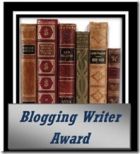Guest Post from Alex Willging
First things first, I have to thank Cassandra for this opportunity to write a guest post on her blog. I’m an admirer of her writing style and I thoroughly enjoyed her novel, Death’s Daughter (a review of which can be read on my own blog, The Rhapsodist).
As an amateur reviewer and aspiring writer, I’ve gone into quite a few stories over the years—short stories, novels, TV shows, films, and even a few video games. Some of these stories entertained me, some of them were thought-provoking, and a fortunate few were able to do both. And there were more than a few stories that didn’t really grab me at all.
I’ve had some time to think about this matter and the conclusion I’ve reached is that it helps to really know the premise of your story and flesh it out as best you can.
It’s all too easy to have an idea. You’re sitting there, minding your own business, and then wham! You can see it all in your mind’s eye—the protagonist, the antagonist, the conflict, the setting. And you go to your notebooks or your computer to start to writing it all out… and you realize it’s not the best thing you’ve ever done. The premise is kinda cool, maybe you’ve got a few bits of dialogue that are too hilarious not to be used, but not much else stands out.
So you stick it in your drawer or save your notes on your hard drive, and go back to the rest of your life.
I think some of the best stories are built off those randomly-written notes. You start collecting them after a while and maybe you begin to mix and match things up—the hero in this story idea is now the villain in another concept, the sidekick maybe gets some real development, and you might jump through ten thousand different genres and sub-genres before you find something you really like.
Revision is a painful process, but it wouldn’t hurt if it didn’t care about producing your best material. And I can think of so many stories I’ve read or experienced where it seems like the author didn’t want to bother with a second or third draft. However, if you don’t put yourself through the misery of producing a really good story, you just might be giving that pain over to your readers, who’ll be miserably picking their way through your tale, trying desperately to understand what’s going on.
But how will you know what’s your best story? Well, that’s something every writer has to decide for himself or herself. You might produce ten thousand non-starts before you hit on the One Good Idea that forms the heart of your best work. It will be whatever gets you writing more and writing better. And when you reach something like that, you can sit back and smile, basking in the glow of your creation.
Just don’t smile for too long, because then come the editors, the literary agents, and those critical readers who will tear your beloved work to shreds. And your cycle of pain and beauty begins all over again, and again, and again…
Note from Cassandra: Thanks Alex for your wonderful post today, and for all your support with Death’s Daughter. And thanks for hosting me today as I continue my blog tour.




